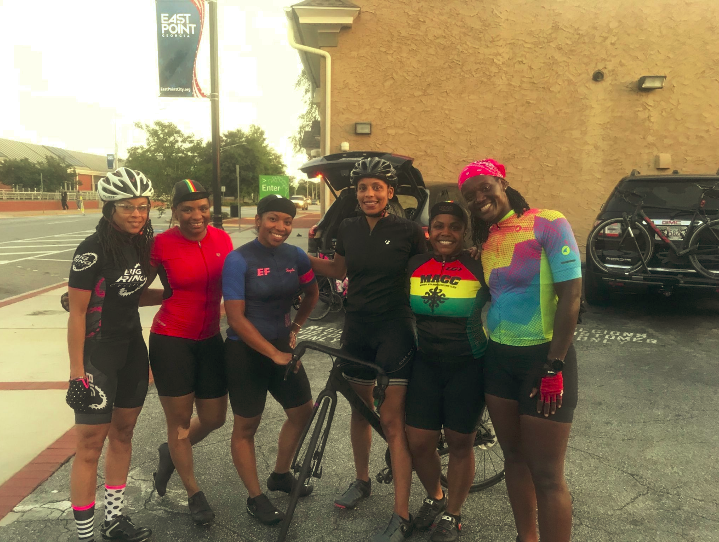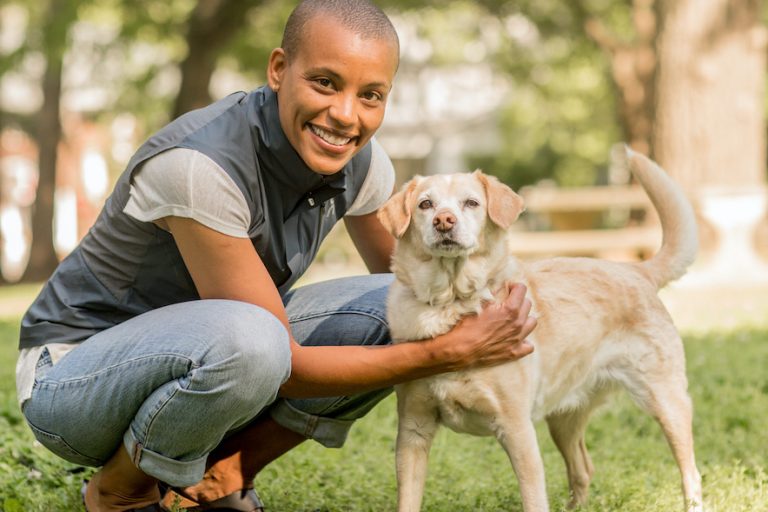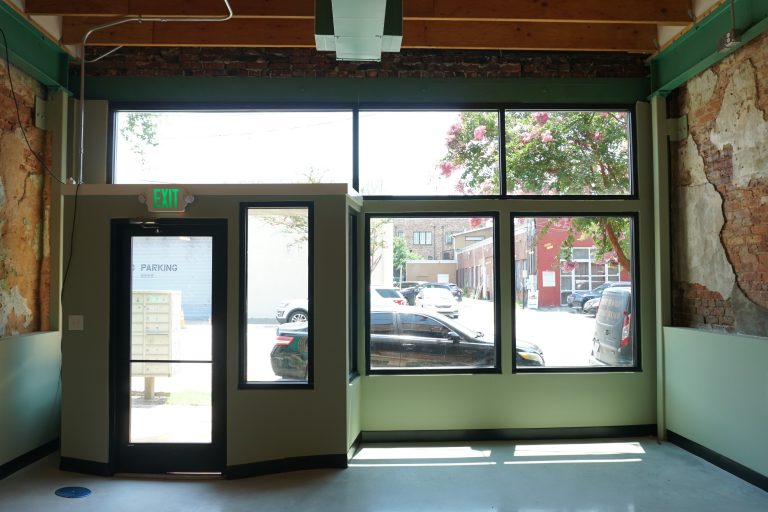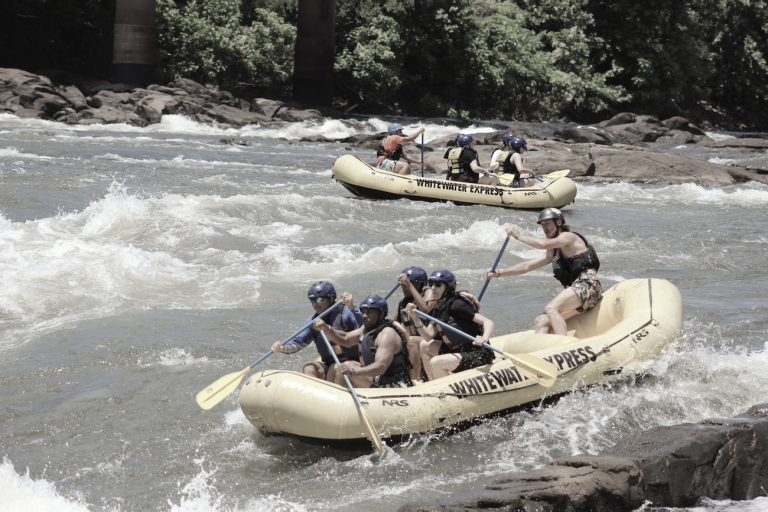A couple weeks ago I finally pushed go on purchasing a new road bike. I bought a Trek Madone back in 2008 but since 2011 I’ve been living in Georgia and, outside of general commuting on my single speed, I’ve not cycled consistently. In December 2016, I endured extensive abdominal surgery for adenomyosis and endometriosis after multiple hemorrhages had left me dangerously anaemic and unable to function mentally and physically. It took more than a year to recover normal use of my core. Just walking felt like an extreme sport.
Canyon bikes had been on my radar for nearly two years since I tacked a picture of the women’s Aeroad to my wall: my aspirational bike of choice. During a visit to Los Angeles in January, I drove to Carlsbad to visit the warehouse for a test ride. In the past I’ve obsessed over bikes before only to ride them and realize the geometry is all wrong for my body. Luckily, Canyon offered no such disappointment. The minute I hopped on the Endurace I became a true Canyon convert.
February dashed my hopes of riding what with relentless rain and a home landscaping project that went expensively awry. March showed its face with fewer rains but more work. I checked the Canyon website in April but the bike I wanted was not in stock. Come May, I was determined that this would be the month. Between the city being on lockdown and stockpiling food I normally would not keep in my house, the time seemed right to strengthen my body by introducing more movement into my life.
I called up the associate who helped me in January and placed an order for an Ultimate WMN CF SL disc 8.0. A week later I unboxed it in my living room, watched a few videos to help me put it together, and was out on a ride within a day of it showing up. I felt the effects of adjustments that needed to be made to the seat post, handlebars, and my right pedal. The second ride was a little better. The right pedal still wasn’t quite where it needed to be. I could feel it adversely affecting the muscles in my right shoulder, knee, and my back. A few more tweaks and I felt comfortable enough to start real group rides.
The next afternoon as I rode my old single speed to the office I ran into a group just finishing a ride in Castleberry Hill. Something about them made me stop and ask if I could ride with them next time. They introduced themselves and welcomed me with enthusiasm even if they did eye my old Fuji with suspicion. I assured them that I had a proper bike for serious rides. Five days later, Timothy and Will met me on the Beltline and I followed them to East Point to meet the larger group for a 26-mile loop around the international airport. It was a pretty flat, moderate ride and helped boost my confidence about getting back into shape. The second ride was similar but with a few more hills. My third ride was this past Saturday in Lithonia: a 37-mile loop that had me gasping for air on multiple inclines.
At one moment about an hour into that 37-mile loop as I stared at the pack of riders in front of me I fell farther and farther behind. I started to doubt my ability to catch up. As I worked to conjure the strength to keep pushing I suddenly felt Timothy’s hand in the middle of my back as he calmly rode up beside me. He softly said something like “you can make it” and held my back all the way to the top of the hill. I honestly don’t remember the exact words he said because shortly after that I started to cry.
The hill didn’t make me cry, it was the help.
The only kind of help I can remember receiving throughout my life is someone yelling you can do it or you got this when I so obviously didn’t. When I’ve struggled, I’ve not had the type of support in which someone recognized my struggle, then created a situation in which what I heard and felt at that moment was we will get to the top of this hill together and you don’t have to do this alone.
The cry was for all the help I’ve never received in my life when I’ve asked for it and even now as I’ve learned to stop asking because the response most likely is you got this. In that moment on the hill, I understood that you got this is not support. You got this is rejection. A rejection of my point of view. A rejection of my request. And a rejection of my need to grow in community.
I’ve gone to schools that expected me to just know things that were never taught to me. I’ve been hired for jobs and then told to figure it out on my own and blatantly denied internal support for education or advancement. I’ve had a business partner tell me that learning how to run a business as the business was open was something that just came naturally to me so I kept getting overburdened with his workload – which he refused to work to learn – as well as mine. I’ve had a romantic partner who could not be bothered to give me a hug and hold me when I’ve broken down crying over a roof collapse or abdominal surgery much less even say the words, you’ve got this. I’ve tried to ask for help from a developer who told me, I see you as a developer then literally told me you’ve got this after saying he didn’t have the bandwidth to help me when I had set up a meeting with him to ask for help because I keep getting stalled in the process from lack of experience.
Perhaps it’s because I have a stoic demeanor and I am reasonably intelligent that people think I can excel without any assistance. I have done the best I can with the resources I have and little help along the way other than the financial assistance that resulted from my father’s death when I was 25.
I’m not talking about friendships here. At one point in my late 20s I had developed a really great friend group in San Francisco. Marguerite, Jeannie, Francesca, Archana, and Vanessa and I had intimate conversations and championed each other’s lives. My friend Becket, too, helped keep me sane. It felt good to have people around me who were smart and driven and successful. However, I don’t think I ever articulated to them why it was so hard for me to get a job or to even get an interview worthy of my education. I am forever grateful to Archana who got me an interview for a contract position in the communication department at The San Francisco Foundation. She believed in my talents and insisted to her co-workers that I could handle whatever they threw at me…and I did. Over the last two years in Atlanta I’ve grown close with another great group of women and I’m able to share things like this now.
However, it is only now at 44 years of age that I’m learning that people who have my capabilities and educational and social background have had mentors and teachers who showed them how to navigate life or careers or social interactions in ways that have led to extraordinary success. I’ve graduated from an Ivy League university, written two and a half novels (unpublished), created and launched a store to celebrate black farmers and local producers, bicycled thousands of miles solo, managed to hold on to intergenerational real estate and keep rents stabilized enough to continue to support black tenants, and maintained a sense of optimism about life in general in the absence of teacher, mentor, or parental support.
I’ve been on teams, but I’ve never felt like part of a team. I’ve never had anyone on any of the basketball, track, or crew teams or any of the jobs I’ve worked at put their hand behind me in a time of need and say, we’re going to get through this together. Rarely has anyone even asked me questions about what I needed for support or even let me know about a pipeline of support being offered without punishing me for asking.
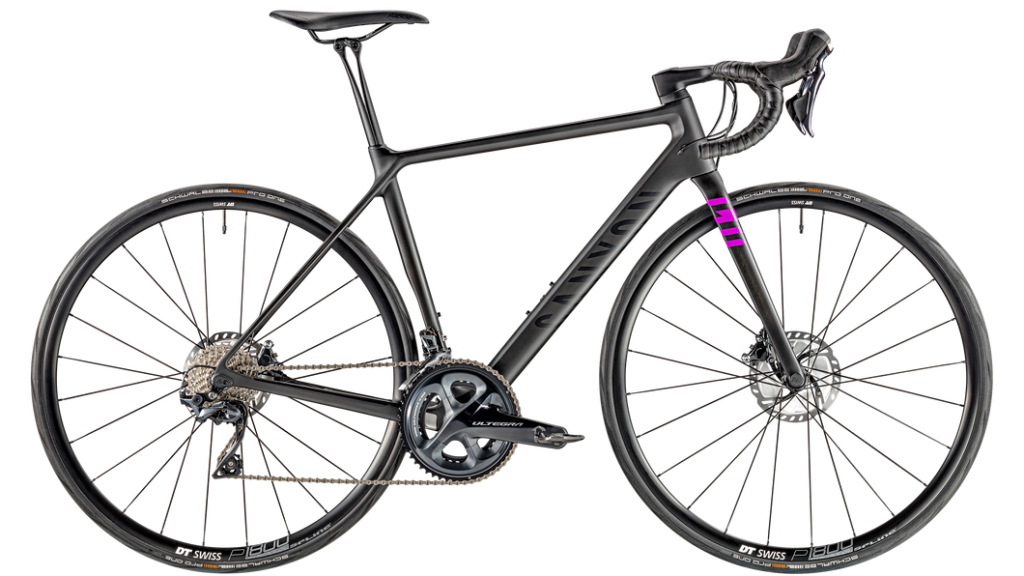
Cycling over the past week with my Canyon Ultimate and this new cycling group has its mental health benefits but, more than that, energy is shifting that I didn’t realize had been pent up. Sadness, anger, grief, and a host of other emotions are coming to the surface that I’m able to leave on the road.
When friends wonder how I could spend so much money on a bike, I have to let them know: it’s about more than just the bike, it’s about my healing, it’s about my learning how to work as a part of a team, and it’s about my commitment to growth.
